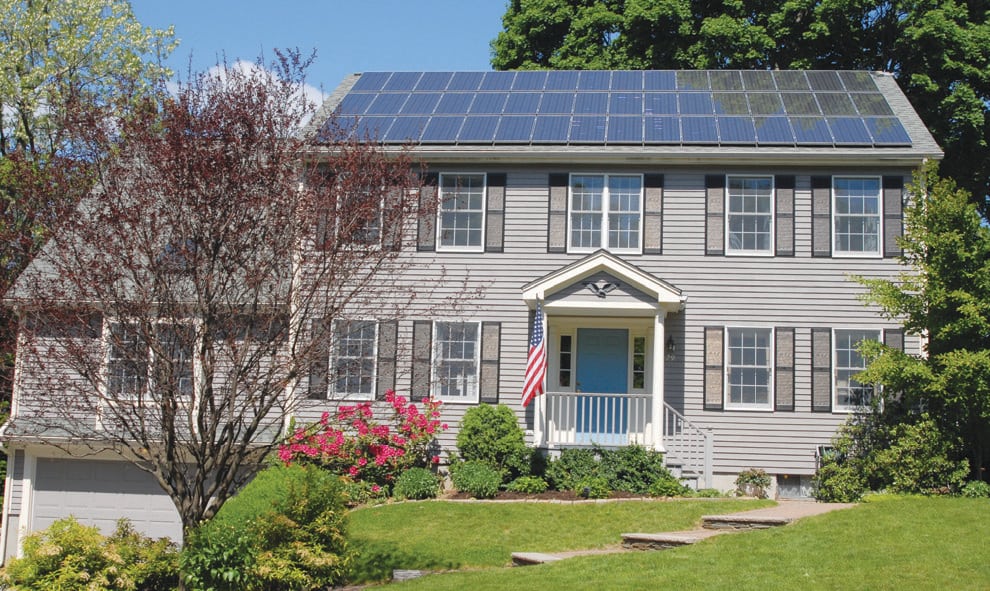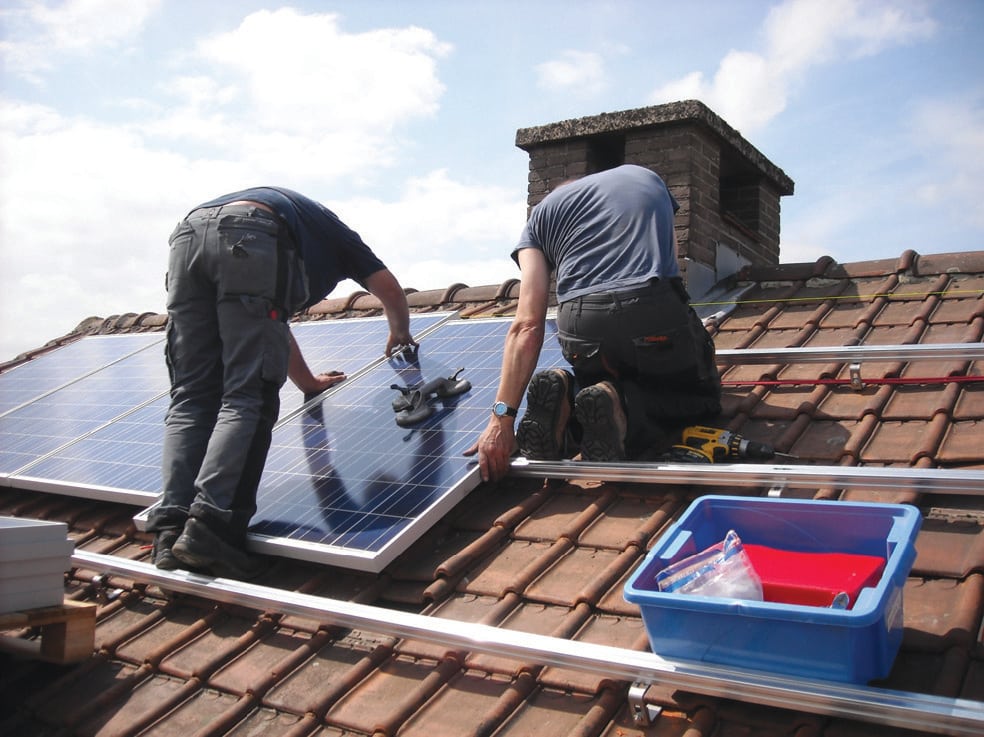I’m hearing a lot about solar power as an efficient option for homes today. Can you tell me some of the basics about solar energy and whether it’s something I should pursue? — Don
Dear Don: There are three ways solar can provide energy for your home:
- Passive solar is a way to capture the sun’s heat directly, often through southfacing windows and dark-colored stone floors that can store heat.
- Solar water-heating systems typically have rooftop panels that collect solar energy and a pump that circulates heated water for storage in a water tank.
- Photovoltaic (PV) systems also collect solar energy through panels, but the PV panels actually convert the energy into electricity.
I suspect you are referencing PV systems, which have skyrocketed in popularity in recent years. PV technology has improved, costs have dropped and financing offers are abundant.
PV panels are usually installed on a roof in an array. The panels generate direct current (DC) power, which is then channeled through an inverter that feeds electricity into the home and back to the electric grid or to a battery system where it is stored for future use.
Several factors go into calculating how cost-effective it would be to install a solar power system for your home. The Tennessee Valley Solar Calculator is a great tool from the Tennessee Valley Authority for determining the correct size, cost and payback for a solar installation using data from your area. Visit edt.tva.gov to get started.
If your roof will need replacing in the next few years, you’ll want to do that before installing solar panels, so be sure to include that expense when calculating the overall cost.
Federal, state and utility tax credits and rebates may be available to offset the price of the equipment and installation. You can find links to these resources at www.collaborativeefficiency.com.
If the estimate you receive includes all the factors we’ve mentioned in this article, it should give you a fairly accurate idea of your return on investment. It’s also a good idea to get multiple estimates if you can and to review the estimate with your electric co-op to ensure the electric rate and metering arrangements are correct.
Before making a final decision, consider these questions:
- How does the investment in a PV system compare to upgrading the energy efficiency of your home? Efficiency upgrades can sometimes yield more bang for your buck and make your home more comfortable. A home energy audit can help you answer this question.
- Is there a better way to invest in solar energy? Many co-ops offer community solar programs, which can produce solar electricity at a lower cost than residential systems.
I hope these tips help you determine if a PV system is right for your home. Remember that your local electric cooperative can be a great resource, so reach out to your co-op’s helpful experts if you have any additional questions.




